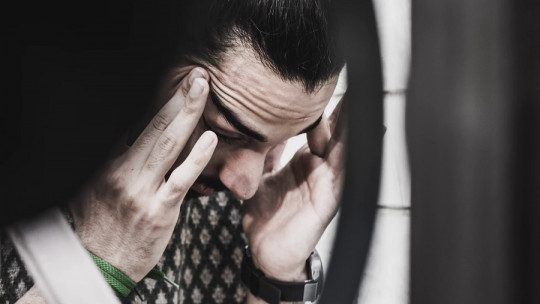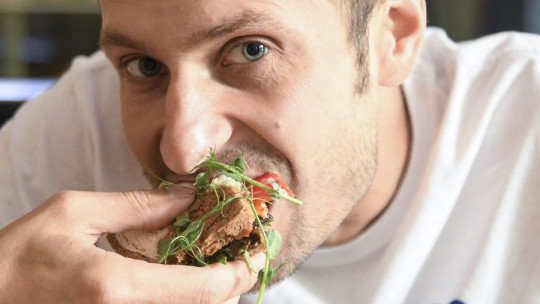
The ability to think before acting is not a gift that everyone possesses. When emotions invade us, it can be highly difficult not to let ourselves be carried away by impulses, which is why on many occasions we can make decisions that we may regret shortly afterwards.
However, be able to control the impulsiveness that sometimes invades our mind is not an impossible task at all, so below we offer a series of guidelines or recommendations that can help us calm this feeling of urgency.
What do we understand by impulsiveness?
In psychology, impulsivity is defined as a cognitive style that is characterized by predisposing the person to act in a considerably rapid, unexpected and excessive manner, which implies a lack of prior reflection and an inability to foresee the effects or consequences that their actions they can assume.
However, this reaction does not have to occur at all times, but is usually typical of situations or contexts with a high emotional charge or in the face of events that may be perceived by the person as threatening.
According to the different theories that we can find within cognitive psychology, impulsivity is conceptualized as a multifactorial trait that encompasses all types of behaviors carried out without a process of reasoning or prior reflection. In the same way, this way of acting nullifies any possibility of foreseeing and taking into account the unwanted effects of these behaviors.
However, not all impulsive behaviors necessarily have negative consequences. There are certain occasions when it is necessary to act quickly and spontaneously; are those moments when We don’t have much time to evaluate whether our reaction is going to be appropriate or not since we will not know the consequences until after doing them.
Therefore, the secret is not to abuse compulsive behaviors, since these create a habit, but to be able to discern when they are appropriate and when they are not.
Although impulsivity can be considered another personality trait, so It does not have to be pathological, there are a series of mental disorders or alterations that include this way of acting as one of their characteristic symptoms. Among them are bipolar disorder, autism, ADHD or borderline and antisocial personality disorders.

10 tips to control impulsiveness
Luckily, there are a series of guidelines that people with high impulsivity can follow to exercise some control over behaviors that are directed by emotions. We’ll see now a series of recommendations to not always let ourselves be carried away by our impulses:
1. Know what causes it
The first step to initiate a series of changes in our impulsive way of acting is know what stimuli or situations provoke these behaviors The reason is that it will always be much easier for us to avoid what we can predict.
A good way to start is to make a record of all those situations in which we have acted impulsively, writing down what situation or stimulus has provoked said response, how we have felt and what our reaction or way of acting has been.
In this way, we will be aware of the events and emotions that enhance our impulsiveness, so by detecting these situations early we will be able to respond more effectively.
2. Count to three
The moment we are aware of what situations generate all types of impulsive responses in us, we will be able to begin to change the way we react.
The main characteristic of impulsivity is that The answer is given very quickly without giving rise to any type of reflection therefore our first step will be to learn to delay the appearance of said response.
Although it seems easier said than done, just by trying to let a few seconds pass, our brain is capable of briefly reflecting and our emotions will seem much calmer. So we will improve our ability to manage tension, emotions and thoughts that cause the impulsive response.
For this to be effective and become routine We must carry out this guideline constantly in all situations, regardless of the pressure or need.
3. Generate self-instructions
Unfortunately, on many occasions it happens that, even if we have managed to carry out the two previous guidelines, our impulsivity can arise in the same way. Since thanks to them we can delay our response but not make it disappear.
Therefore. What can we do to respond equally effectively? Make use of self-instructions Telling ourselves what steps we can take or how we are going to respond to a situation will allow us to reflect on it and perceive whether it is an effective reaction or not.
Developing internal language dynamics, or even verbalizing them out loud, allows us to be aware of our thoughts and, therefore, correct them more easily.
5. Take advantage of our energy
In some cases, the problem of impulsivity is caused by an excess of energy in the person, which releases it at the least appropriate moments. Knowing this, people who identify with this pattern of behavior can channel this energy through physical exercise.
Activities that involve a high expenditure of energy can be useful for learning to control our impulsivity and use it only in those moments when it is really appropriate.
6. Use relaxation techniques
In those cases in which the person is unable to channel their excess energy, they can try to reduce the tension it generates. Perform relaxation exercises, meditation or activities such as yoga, will allow us to maintain a natural state of relaxation that will help reduce impulsive responses.
Likewise, if our daily routine is characterized by being very stressful, it is very possible that our tendency to act impulsively is greater, therefore try to reduce stress levels through good organization of the day accompanied by small routine relaxation exercises. It will also be of great help to the person.
7. Think about alternatives
By being aware of our way of acting, we will be able to develop alternative guidelines for action and thinking If we manage to do these behaviors enough times, they will become a habit and will reduce the problem of impulsivity.
8. Be consistent
If we take seriously the consequences of our actions, as well as the magnitude or effect that our behaviors can have on other people, we will be better able to reflect before acting.
9. Use the Ulysses contract strategy
Ulysses’ contract consists of take advantage of the help of an ally so that, every time they restrict your freedom (giving prior permission and rules to follow) at times when you may fall into temptation, or even to impose a penance on you.
For example, some people let their partner, father or mother take away their access to the Internet in situations where the desire arises to buy something without needing it; Other people create a reserve of money and instruct another person so that every time they give in to temptation, they allocate part of that sum to a donation to an organization that is detested.
10. Use an emotional journal
Writing every day about our emotions will help us detect the thought patterns and feelings that arise in our mind just before we give in to impulses ; That way we will have an easier time “deactivating” those trap thoughts in time.








